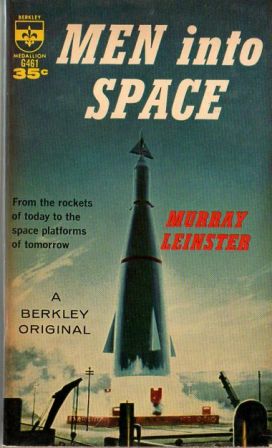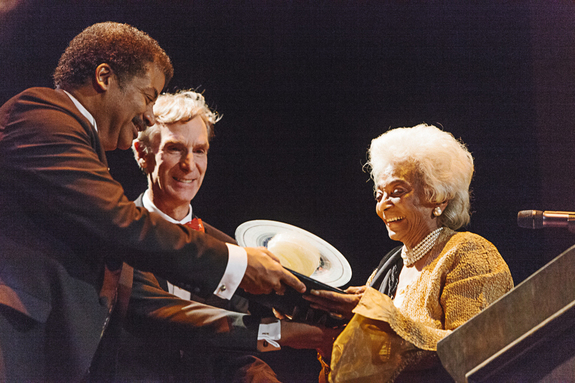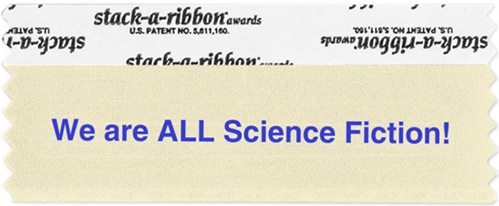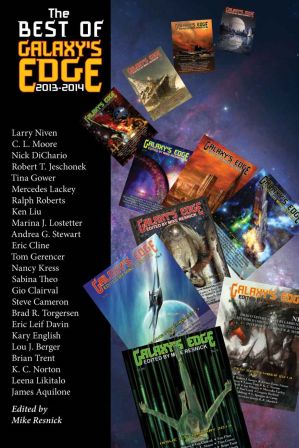(1) Disney has optioned the movie rights to Ursula Vernon’s childrens book Castle Hangnail for an adaptation to be produced by Ellen DeGeneres.
DeGeneres will produce with Jeff Kleeman, her partner at A Very Good Production banner.
The book tells of a 12-year old witch who shows up at a dark castle that needs a master or be decommissioned by the bureaucratic Board of Magic and its many minions, such as a hypochondriac fish and a letter ‘Q’ averse minotaur, dispersed into the world. She projects confidence as she tackles the series of tasks laid forth by the board but underneath lie several simmering secrets, including one of her being an imposter….
DeGeneres and Kleeman are busy in the television world but Hangnail is their second notable move on the movie side and keeps their feet firmly in the fantasy field. Earlier this year the duo set up Uprooted, the novel from Temeraire author Naomi Novik, for Warner Bros.
(2) A magisterial essay by Ursula K. Le Guin at Tin House, “’Where Do You Get Your Ideas From?’”.
American critics and academics have been trying for forty years to bury one of the great works of twentieth-century fiction, The Lord of the Rings. They ignore it, they condescend to it, they stand in large groups with their backs to it, because they’re afraid of it. They’re afraid of dragons. They know if they acknowledge Tolkien they’ll have to admit that fantasy can be literature, and that therefore they’ll have to redefine what literature is.
What American critics and teachers call “literature” is still almost wholly restricted to realism. All other forms of fiction—westerns, mysteries, science fiction, fantasy, romance, historical, regional, you name it—are dismissed as “genre.” Sent to the ghetto. That the ghetto is about twelve times larger than the city, and currently a great deal livelier, doesn’t bother those who live in ivory towers. Magic realism, though—that does bother them; they hear Gabriel García Márquez gnawing quietly at the foundations of the ivory tower, they hear all these crazy Indians dancing up in the attic, and they think maybe they should do something about it. Perhaps they should give that fellow who teaches the science fiction course tenure? Oh, surely not.
To say that realistic fiction is by definition superior to imaginative fiction is to imply that imitation is superior to invention. I have wondered if this unstated but widely accepted (and, incidentally, very puritanical) proposition is related to the recent popularity of the memoir and the personal essay. This has been a genuine popularity, not a matter of academic canonizing. People really do want to read memoir and personal essay, and writers want to write it. I’ve felt rather out of step. I like history and biography fine, but when family and personal memoir seems to be the most popular—the dominant narrative form—well, I have searched my soul for prejudice and found it. I prefer invention to imitation. I love novels. I love made-up stuff.
(3) “The Call of the Sad Whelkfins: The Continued Relevance of How To Suppress Women’s Writing“ by Annalee Flower Horne and Natalie Luhrs in Uncanny Magazine #7 uses Joanna Russ’ text to diagnose some critics’ responses to Ancillary Justice.
I snorted. For the past week, Natalie Luhrs and I had been discussing the book in the context of the ongoing fight for the soul of the science fiction community, most recently played out in the failed attempt to take over the Hugo Awards. In HTSWW, Russ uses an alien species called the “whelk–finned Glotolog” to illustrate the methods by which human cultures control women’s writing without direct censorship (4). These days, the tactics the so–called “sad puppies” use to paint themselves as the true heirs of science fiction, bravely holding the line against the invading masses, are the very same tactics Joanna Russ ascribed to the whelk–finned Glotolog in 1983…
False Categorizing of the Work She wrote it, but she isn’t really an artist, and it isn’t really art. (HTSWW)
False Categorization is, essentially, bad faith. It allows the critic to shift the focus to something else—usually something trivial in the larger context, so as to dismiss the whole. So once again, we’ll look at the pronouns in Ancillary Justice. By focusing on the pronouns, the sad whelkfins are able to dismiss the entire work as nothing more than a political screed against men, as turgid message fiction that doesn’t even tell a good story.
That’s a massive tell to anyone who has actually read the book—because while the pronouns do take some adjustment, they’re a small part of the novel’s world–building and not a major source of plot or conflict. They just are, the way there is air to breathe and skel to eat.
(4) “Updates on the Chinese Nebula Awards and the Coordinates Awards” at Amazing Stories has the full list of award winners (only two were reported here on the night of the ceremony). Since Steve Davidson is able to reproduce the titles in the original language, all the more reason to refer you there.
(5) Liu Cixin participated in “The Future of China through Chinese Science Fiction” at the University of Sydney on November 3.
(6) Crossed Genres Magazine will close after the December 2015 issue reports Locus Online.
Co-publisher Bart Lieb posted a statement:
Two primary factors led to this decision. First, one of Crossed Genres’ co-publishers, Kay Holt, has been dealing with Post-Traumatic Stress Disorder (PTSD) for more than two years. It’s made it extremely difficult for her to help with the running of CG, leaving the lion’s share of responsibilities on the other co-publisher, Bart Leib, who’s also working a day job. Magazine co-editor Kelly Jennings, ebook coordinator Casey Seda, and our team of first readers have all been heroic in their volunteer efforts, but we’ve still been unable to keep from falling behind.
The second factor is simply that the magazine has run out of funds to continue. In April 2014 we ran a successful Kickstarter to keep CG Magazine going, but once another year had passed, roughly 90 percent of those who’d pledged to the Kickstarter chose not to renew their memberships….
(7) Today In History
- November 3, 1956 — On this night in 1956, CBS presented the first broadcast of The Wizard of Oz. It was a major event for which the network paid MGM a quarter of a million dollars for the rights (over $2,000,000 in today’s dollars.)
- November 3, 1976 — Brian De Palma’s Carrie is seen for the very first time
(8) Today’s Birthday Monster
- November 3, 1954 — Godzilla was released in Japanese theaters.
(9) Today’s Belated Birthday
- Lovecraft’s 125th birthday (in August) was celebrated in many ways in Providence. A new plaque was installed near his birthplace at 454 Angell Street, designed, created, and installed by Gage Prentiss.
(10) Today’s Yodeling Marmot
(11) “Transparent Aluminum: IT’S REAL!” at Treehugger.
Remember Star Trek: The Voyage Home, where Scotty talks into a computer mouse and then instantly figures out keyboards and gives away the formula for transparent Aluminum? And remember Galaxy Quest, where Commander Taggart tells the Justin Long character about the ship: “IT’S REAL!”
Mash those two scenes together and you have Spinel, described by US Naval Research Laboratory scientist Dr. Jas Sanghera as “actually a mineral, it’s magnesium aluminate. The advantage is it’s so much tougher, stronger, harder than glass. It provides better protection in more hostile environments—so it can withstand sand and rain erosion.” He likes it for the same reason Scotty did, according to an NRL press release
(12) Arlan Andrews told Facebook friends that Ken Burnside has answered the Alfies.

So, today I received this 3D-printed crashed rocket ship, titled “The Wreck of the Hugo” as created by artist Charles Oines and commissioned by Ken Burnside. Others went to Kary English, Mike Resnick, and Toni Weisskopf. According to Ken Burnside, the official 2015 Hugo voting tallies showed each of us recipients as runners-up to the 2500-vote NO AWARD bloc that wrecked the Hugos this year in many categories. I gratefully accept the gifted award in the spirit in which it was given, and sincerely hope that no future Hugo nominees are ever again voted off the island in such a fashion.
(That last part resonates strangely, at least in my memory, because “I accept this award in the spirit in which it is given” was Norman Spinrad’s answer when handed the Brown Hole Award for Outstanding Professionalism in 1973. And he was right to be suspicious.)
(13) Meanwhile, the curator of the Alfies, George R.R. Martin, is already making recommendations for the Dramatic Presentation categories in “Hugo Thoughts”.
In the past, I have usually made my own Hugo recommendations only after nominations have opened. But in light of what happened last year, it seems useful to begin much sooner. To get talking about the things we like, the things we don’t like. This is especially useful in the case of the lesser known and obscure work. Drawing attention to such earlier in the process is the best way to get more fans looking at them… and unless you are aware of a work, you’re not likely to nominate it, are you? (Well, unless you’re voting a slate, and just ticking off boxes).
Let me start with the Dramatic Presentation category. Long form….
(14) Damien G. Walter does best when the target is as easy to hit as the broad side of a barn. “Gus. A Case Study In Sad Puppy Ignorance”.
Firstly, is Gus actually asking us to believe that Frankenstein : A Modern Prometheus by Mary Wollstonecraft Shelley, the famed early feminist icon, daughter of philosopher and political activist Mary Wollstonecraft, wife of romantic poet and political radical Percy Byshe Shelley, close friend of paramilitary revolutionary Lord Byron, and author of seven novels (many science fictional) and innumerable other stories, essays and letters, all of them revealing a life of deep engagement with political and social issues of gender, class, sexuality and more, that this same Mary Wollstonecraft Shelley wrote Frankenstein : A Modern Prometheus (a subtitle explicitly invoking the mythical act of stealing fire from the gods as an opening rhetorical reference to the risks of scientific endeavour) as, and I quote, “the sole purpose of…macabre entertainment”? Because I would suggest, on the basis of all available evidence, including every single thing ever written about Frankenstein, that Gus is in a minority on this one. In fact, I will go so far as to say that he is utterly, absurdly and idiotically wrong.
(15) John Thiel’s responses to Steve Davidson’s queries about “trufandom” appear in “The Voices of Fandom” at Amazing Stories.
Steve’s introduction notes –
I posed a series of interview questions to members of the Fan History group on Facebook. I thought it would be a good place to start because that group is made up entirely of Trufans.
Today, I present the first in a series of responses to those questions and I should point out that, in typical Fannish fashion, the answers are anything but monolithic. Apparently Fans have as many different ideas about what it means to be a Fan as there are Fans, which just serves to point out how difficult it is to get a handle on this question.
(16) A video interview with Dame Diana Rigg.
Five decades since she first appeared as Emma Peel in The Avengers (1961-1969), fans of the show still approach Dame Diana Rigg to express their gratitude. Rigg joins BFI curator Dick Fiddy to reflect on the influence of Peel on real-life women and acting with Patrick Macnee and Ian Hendry.
(17) Jon Michaud reviews Michael Witwer’s Empire of Imagination: Gary Gygax and the Birth of Dungeons & Dragons in The New Yorker and accuses the biographer of shielding Gygax rather than exploring more deeply the controversial topic of his religious views.
Dr. Thomas Radecki, a founding member of the National Coalition on TV Violence, said, “There is no doubt in my mind that the game Dungeons & Dragons is causing young men to kill themselves and others.” In her book “Raising PG Kids in an X-Rated Society,” Tipper Gore connected the game to satanism and the occult. All of this prompted a “60 Minutes” segment in which Gygax rejected these myriad accusations, calling them “nothing but a witch hunt.”
What was largely unknown or omitted from this brouhaha is that Gygax was an intermittently observant Jehovah’s Witness. This startling fact crops up about halfway through Witwer’s biography, when he notes that Gygax’s “controversial” game, along with his smoking and drinking, had led to a parting of the ways with the local congregation. Up until that point, the matter of Gygax’s faith had gone unmentioned in the biography, and it is barely discussed thereafter. (The book’s index does not have an entry for “Jehovah’s Witness” or “Gygax, Gary—religious beliefs.”) Given the furor that D. & D. caused, the absence of a deeper analysis of Gygax’s faith is a glaring omission. In a recent interview with Tobias Carroll, Witwer acknowledged that Gygax “was a practicing Jehovah’s Witness. He would go door-to-door and he would give out pamphlets. He was pretty outspoken about it, as a matter of fact.” The reason for almost completely excluding it from the biography, Witwer says, is that “I couldn’t find it [as] a huge driving force in his life.…I didn’t want to be too heavy-handed with that, because I’m not clear that, especially with his gaming work and even his home life, how big a factor that was on a day-to-day basis. But I do know he was practicing.”
(18) Galactic Journey visits the year 1960 where young Mike Glyer’s favorite TV series, Men Into Space, is still on the air, and there’s even a tie-in novel by Murray Leinster.

“Men Into Space” consists of short stories following the career of Space Force officer Ed McCauley:
As a lieutenant, McCauley makes the first manned rocket flight.
As a captain, McCauley deals with an injured crewman while piloting the first space-plane.
As a major, McCauley deals with a potentially-fatal construction accident while in charge the building of the first space station.
As a colonel, McCauley deals with a murderous personnel problem while overseeing the establishment of a series of radio relays to the moon’s far side, then deals with a technical problem aboard a rocket to Venus, and another personnel problem on a Mars mission.
Lots of nuts and bolts details about ballistics, rocket fuels, radiation, the van Allen belts, and so forth. And with each story, McCauley deals with progressively more complex human problems as he moves up in rank.
Although 7-year-old me would have loved the tie-in novel, 35 cents would have been a king’s ransom in my personal economy….
(19) Here’s a photo of the Cosmos Award presentation to Neil deGrasse Tyson at the Planetary Society 35th anniversary celebration on October 24.

Neil deGrasse Tyson (left) accepted The Planetary Society’s Cosmos Award for Outstanding Public Presentation of Science. Bill Nye (middle) was on stage as Tyson accepted the award from Nichelle Nichols (right), who is best known for playing Lt. Uhura on “Star Trek” (the original series) and who is an advocate for real-world space exploration.
Before the award was given to Tyson, Nye reminisced about meeting Tyson through the organization. Nye then showed a photo of what Tyson looked like in 1980, when he was a wrestler (Tyson wrestled in high school and college), and Tyson joked that he kicked some serious butt.
Tyson had come prepared, and showed a photo of Nye in 1980, in a “Coneheads” costume, with a silver ring around his head.
(20) The Red Bull Music Academy website has published David Keenan’s “Reality Is For People Who Can’t Handle Science Fiction”, about the influence of SF on French progressive rock from 1969 through 1985.
In 2014 I interviewed Richard Pinhas of Heldon, still one of the central punk/prog mutants to come out of the French underground. I asked him about the influence of the visionary science fiction writer Philip K. Dick on his sound and on his worldview. “Philip K. Dick was a prophet to us,” Pinhas explained. “He saw the future.”
It makes sense that a musical and cultural moment that was obsessed with the sound of tomorrow would name a sci-fi writer as its central avatar. Indeed, while the Sex Pistols spat on the British vision of the future dream as a shopping scheme, the French underground projected it off the planet altogether.
When Pinhas formed Heldon in 1974 he named the group in tribute to sci-fi writer Norman Spinrad’s 1972 novel The Iron Dream, conflating his own vision of a mutant amalgam of Hendrix-inspired psychedelic rock and cyborg-styled electronics with Spinrad’s re-writing of history.
(21) At CNN, “Art transforms travel photos with paper cutouts”:
That’s what happened when Londoner Rich McCor began adorning pictures of British landmarks with whimsical paper cutouts and posting the results online.
Originally, the 28-year-old creative agency worker intended the photos for the amusement of himself and friends.
Then he got a lesson on the impact of “viral” when Britain’s “Daily Mail” publicized some of his photos.

[Thanks to Rob Thornton, Mark-kitteh, Will R., Michael J. Walsh, JJ, Janice Gelb, and John King Tarpinian for some of these stories. Title credit goes to File 770 contributing editor of the day Will R.]
 The guest list for the first We Are ALL SF convention, November 4-6, currently includes: Jennifer Brozek, Drew Hobson, David Gerrold, Keaton Weimer, Mike Resnick, Chaz Kemp, Beth Meacham, Jody Lynn Nye, Jeffrey Veregge, Nancy Kress, William F. Nolan, Elizabeth Ann Scarborough, James Gunn, Raven Oak, Scott Hungerford, Angela Korra’ti, Dara Korra’ti, Sunni Brock, Sebby Aguilar, Jamie Mason, Greg Smith, Donna Barr, Carolyn Kay, Elizabeth Guizettui, Pam Binder, Dr. Vicka Rael Corey, Duane Wilkerson, Jason V. Brock, and Alaina Capoeman.
The guest list for the first We Are ALL SF convention, November 4-6, currently includes: Jennifer Brozek, Drew Hobson, David Gerrold, Keaton Weimer, Mike Resnick, Chaz Kemp, Beth Meacham, Jody Lynn Nye, Jeffrey Veregge, Nancy Kress, William F. Nolan, Elizabeth Ann Scarborough, James Gunn, Raven Oak, Scott Hungerford, Angela Korra’ti, Dara Korra’ti, Sunni Brock, Sebby Aguilar, Jamie Mason, Greg Smith, Donna Barr, Carolyn Kay, Elizabeth Guizettui, Pam Binder, Dr. Vicka Rael Corey, Duane Wilkerson, Jason V. Brock, and Alaina Capoeman.






